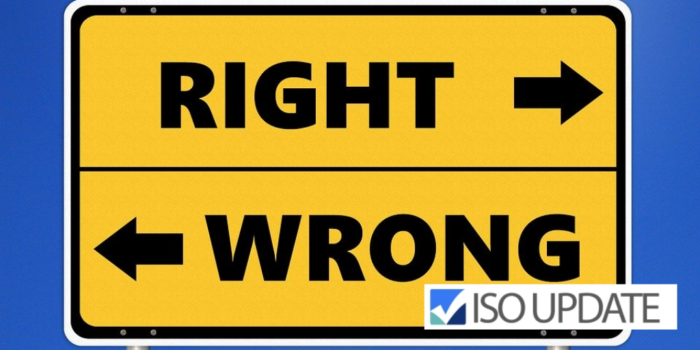Video – Ethics and Auditing
Ethics and Integrity is the choice between what’s convenient and what’s right. Reinforcing good execution and behavior of any organization relies on an auditor to confront poor execution and behavior and endorse proper and conforming behavior, and not simply “look the other way” when pressured from above or by budget. If you wish to perform a value-added service with your audits and report, you have a duty to utilize ethical practices in your audits, for the good of your own reputation, and the good of the company paying you to audit their work.
Ethics is a personal choice, it’s a personal compass that dictates right from wrong but unfortunately, it’s not always common sense. Being an auditor, you may face scenarios where you can’t always tell which choice is right, which choice is easy, and which choice will let you keep your clients happy. The issue stems from a bias in the industry that is hard to avoid. The people you audit are paying you, and therefore hold power over you as an auditor or a Certification Body to produce favorable results or they will jump ship to another provider. While this is an industry norm, it still produces scenarios where the potential for “letting something slide” is easily allowed. This, however, is not ethical and tarnishes the whole perceived image of certified entities.
We go into how Auditors have a responsibility to be ethical in their position of power. If you want to learn more, read the full article here.
ISO Terms Explained

To the novice quality manager, ISO jargon can be extremely overwhelming. What is an NCR? What do you mean by OFI? Are we certified or accredited? But before you go and pull out your hair, let’s take a moment to go over some of the most frequently used terms and their definitions with regards to ISO and Management System Certification.


